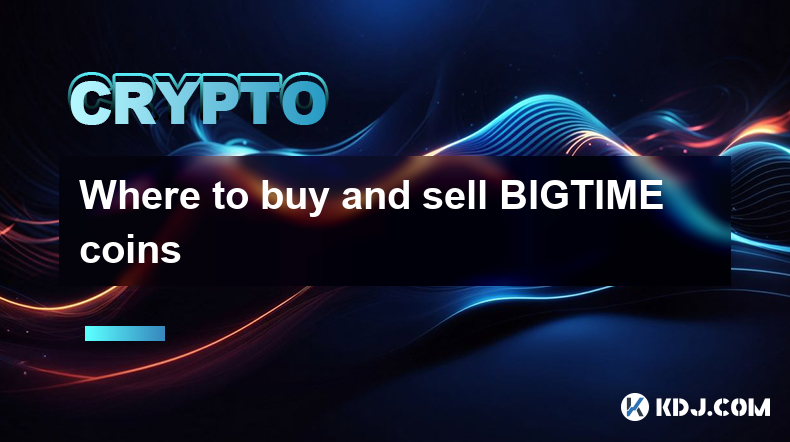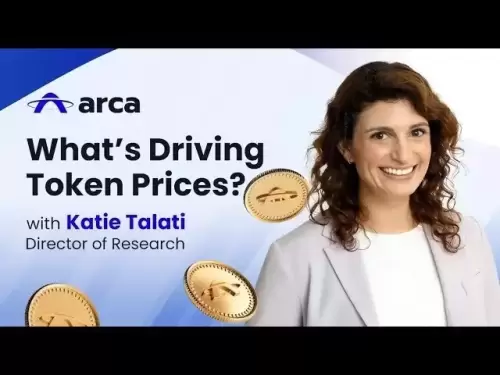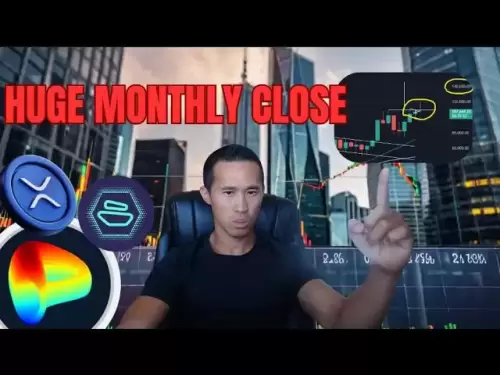-
 Bitcoin
Bitcoin $107,177.4639
-1.14% -
 Ethereum
Ethereum $2,491.2037
-0.61% -
 Tether USDt
Tether USDt $1.0002
0.01% -
 XRP
XRP $2.2429
1.26% -
 BNB
BNB $657.3356
0.28% -
 Solana
Solana $155.4695
1.22% -
 USDC
USDC $0.9999
0.00% -
 TRON
TRON $0.2807
1.56% -
 Dogecoin
Dogecoin $0.1651
-2.72% -
 Cardano
Cardano $0.5729
-1.27% -
 Hyperliquid
Hyperliquid $39.6884
-0.35% -
 Bitcoin Cash
Bitcoin Cash $507.4439
0.67% -
 Sui
Sui $2.7830
-4.69% -
 Chainlink
Chainlink $13.4283
-2.75% -
 UNUS SED LEO
UNUS SED LEO $9.0352
-0.48% -
 Avalanche
Avalanche $17.9622
-4.71% -
 Stellar
Stellar $0.2388
-1.01% -
 Toncoin
Toncoin $2.9152
-0.08% -
 Shiba Inu
Shiba Inu $0.0...01143
-4.04% -
 Litecoin
Litecoin $86.1768
-2.26% -
 Hedera
Hedera $0.1501
-1.98% -
 Monero
Monero $325.6175
4.22% -
 Polkadot
Polkadot $3.4095
-4.60% -
 Dai
Dai $1.0000
0.01% -
 Bitget Token
Bitget Token $4.5457
-1.85% -
 Ethena USDe
Ethena USDe $1.0002
-0.01% -
 Uniswap
Uniswap $7.1505
-3.76% -
 Aave
Aave $275.8099
-0.99% -
 Pepe
Pepe $0.0...09777
-6.00% -
 Pi
Pi $0.5071
-5.03%
Where to buy and sell BIGTIME coins
To buy or sell BIGTIME coins, establish an account on a reputable cryptocurrency exchange that supports BIGTIME coin trading, such as Binance, Coinbase, KuCoin, Kraken, or Huobi.
Dec 21, 2024 at 05:34 pm

Key Points of the Article:
- How to create a cryptocurrency exchange account
- Where to locate a reputable BIGTIME coin exchange
- Methods of purchasing and selling BIGTIME coins
- Understanding the transaction fees associated with BIGTIME coin trading
- Security measures for protecting your BIGTIME coin holdings
1. Creating a Cryptocurrency Exchange Account
To engage in trading BIGTIME coins, you must establish an account on a cryptocurrency exchange. Various exchanges are accessible, each featuring its own unique set of capabilities and functionalities.
- Binance: World's largest cryptocurrency exchange, offering a comprehensive range of trading pairs and advanced trading tools.
- Coinbase: User-friendly exchange, ideal for beginners with its simple interface and educational resources.
- KuCoin: Exchange catering to experienced traders, providing a diverse selection of altcoins and low trading fees.
- Kraken: Established exchange known for its security and reliability, offering competitive fees and a wide range of trading options.
- Huobi: Global exchange with a strong presence in Asia, featuring a user-friendly platform and numerous trading pairs.
2. Locating a Reputable BIGTIME Coin Exchange
Not all cryptocurrency exchanges offer trading in BIGTIME coins. Before selecting an exchange, verify whether it supports BIGTIME coin trading.
- CoinMarketCap: Track the availability of BIGTIME coins on various exchanges and compare their trading volumes.
- Cryptocurrency Forums: Engage with cryptocurrency enthusiasts on forums to gather insights and recommendations for reputable exchanges.
- Exchange Websites: Visit the official websites of cryptocurrency exchanges to check if they offer BIGTIME coin trading.
3. Methods of Purchasing and Selling BIGTIME Coins
Once you have created an account on an exchange that supports BIGTIME coin trading, you can proceed with buying or selling the coins.
- Limit Orders: These orders allow you to set the desired price at which you want to buy or sell BIGTIME coins.
- Market Orders: These orders execute trades immediately at the current market price.
- Stop-Limit Orders: These orders combine stop orders with limit orders, enabling you to execute trades once a specific price is reached.
- Stop-Market Orders: Similar to stop-limit orders, these orders combine stop orders with market orders, triggering trades immediately when a specified price is hit.
4. Understanding the Transaction Fees Associated with BIGTIME Coin Trading
Cryptocurrency exchanges typically charge transaction fees for executing trades. These fees vary depending on the exchange, the trading pair, and the type of order.
- Trading Fees: Exchanges charge a percentage of the trade amount as a trading fee. This fee is usually lower for makers (those who add liquidity to the market) than for takers (those who remove liquidity).
- Withdrawal Fees: Some exchanges charge a fee when withdrawing BIGTIME coins to an external wallet. This fee varies depending on the exchange and the withdrawal method.
5. Security Measures for Protecting Your BIGTIME Coin Holdings
Securing your BIGTIME coin holdings is crucial to prevent unauthorized access and theft.
- Use Strong Passwords: Create complex and unique passwords for your exchange account and any other platforms where you store BIGTIME coins.
- Enable Two-Factor Authentication (2FA): Implement 2FA on your exchange account and any other platforms that support it. This adds an extra layer of security by requiring a code from your mobile device to log in.
- Store BIGTIME Coins in Hardware Wallets: Consider storing your BIGTIME coins in a hardware wallet, which is a physical device that keeps your private keys offline, reducing the risk of cyberattacks.
- Be Wary of Phishing Scams: Phishing emails or websites attempt to trick you into revealing your login credentials or private keys. Always verify the authenticity of any communication before providing such information.
FAQs Related to Buying and Selling BIGTIME Coins:
Q: What is the best platform to buy and sell BIGTIME coins?
A: The best platform depends on individual preferences. Binance and Coinbase are popular options for beginners, while experienced traders may prefer KuCoin or Kraken for their advanced features.
Q: How do I choose a reputable BIGTIME coin exchange?
A: Consider the exchange's trading volume, security measures, customer support, and fees when selecting an exchange. Utilize CoinMarketCap or cryptocurrency forums to gather information and recommendations.
Q: What are the differences between limit orders and market orders?
A: Limit orders allow you to set the desired price for buying or selling, while market orders execute trades immediately at the current market price. Limit orders provide more control over the execution price, while market orders are faster and simpler.
Q: How can I protect my BIGTIME coin holdings?
A: Implement strong security measures such as unique passwords, 2FA, hardware wallets, and phishing awareness. Regularly review your security settings and stay informed about potential vulnerabilities and scams in the cryptocurrency space.
Q: What are the transaction fees associated with BIGTIME coin trading?
A: Transaction fees vary depending on the exchange, trading pair, and order type. Check the exchange's fee schedule for specific information on trading and withdrawal fees.
Disclaimer:info@kdj.com
The information provided is not trading advice. kdj.com does not assume any responsibility for any investments made based on the information provided in this article. Cryptocurrencies are highly volatile and it is highly recommended that you invest with caution after thorough research!
If you believe that the content used on this website infringes your copyright, please contact us immediately (info@kdj.com) and we will delete it promptly.
- Ruvi AI: Is This Token Gem Delivering Real ROI?
- 2025-07-01 06:30:11
- Bitcoin Price, Robinhood, & BTC Momentum: What's the Deal?
- 2025-07-01 06:30:11
- PNG Membership Soars to Record High: A Deep Dive into Growth and What It Means
- 2025-07-01 06:50:11
- Bitcoin's Breakout to $110K: What's the Real Deal, New York?
- 2025-07-01 06:50:11
- Valhalla Beckons: Norse Mythology Meets Blockchain Gaming
- 2025-07-01 07:10:11
- Valhalla Beckons: Norse Mythology Meets Blockchain Gaming
- 2025-07-01 06:55:12
Related knowledge

How to customize USDT TRC20 mining fees? Flexible adjustment tutorial
Jun 13,2025 at 01:42am
Understanding USDT TRC20 Mining FeesMining fees on the TRON (TRC20) network are essential for processing transactions. Unlike Bitcoin or Ethereum, where miners directly validate transactions, TRON uses a delegated proof-of-stake (DPoS) mechanism. However, users still need to pay bandwidth and energy fees, which are collectively referred to as 'mining fe...

USDT TRC20 transaction is stuck? Solution summary
Jun 14,2025 at 11:15pm
Understanding USDT TRC20 TransactionsWhen users mention that a USDT TRC20 transaction is stuck, they typically refer to a situation where the transfer of Tether (USDT) on the TRON blockchain has not been confirmed for an extended period. This issue may arise due to various reasons such as network congestion, insufficient transaction fees, or wallet-rela...

How to cancel USDT TRC20 unconfirmed transactions? Operation guide
Jun 13,2025 at 11:01pm
Understanding USDT TRC20 Unconfirmed TransactionsWhen dealing with USDT TRC20 transactions, it’s crucial to understand what an unconfirmed transaction means. An unconfirmed transaction is one that has been broadcasted to the blockchain network but hasn’t yet been included in a block. This typically occurs due to low transaction fees or network congestio...

How to check USDT TRC20 balance? Introduction to multiple query methods
Jun 21,2025 at 02:42am
Understanding USDT TRC20 and Its ImportanceUSDT (Tether) is one of the most widely used stablecoins in the cryptocurrency market. It exists on multiple blockchain networks, including TRC20, which operates on the Tron (TRX) network. Checking your USDT TRC20 balance accurately is crucial for users who hold or transact with this asset. Whether you're sendi...

What to do if USDT TRC20 transfers are congested? Speed up trading skills
Jun 13,2025 at 09:56am
Understanding USDT TRC20 Transfer CongestionWhen transferring USDT TRC20, users may occasionally experience delays or congestion. This typically occurs due to network overload on the TRON blockchain, which hosts the TRC20 version of Tether. Unlike the ERC20 variant (which runs on Ethereum), TRC20 transactions are generally faster and cheaper, but during...

The relationship between USDT TRC20 and TRON chain: technical background analysis
Jun 12,2025 at 01:28pm
What is USDT TRC20?USDT TRC20 refers to the Tether (USDT) token issued on the TRON blockchain using the TRC-20 standard. Unlike the more commonly known ERC-20 version of USDT (which runs on Ethereum), the TRC-20 variant leverages the TRON network's infrastructure for faster and cheaper transactions. The emergence of this version came as part of Tether’s...

How to customize USDT TRC20 mining fees? Flexible adjustment tutorial
Jun 13,2025 at 01:42am
Understanding USDT TRC20 Mining FeesMining fees on the TRON (TRC20) network are essential for processing transactions. Unlike Bitcoin or Ethereum, where miners directly validate transactions, TRON uses a delegated proof-of-stake (DPoS) mechanism. However, users still need to pay bandwidth and energy fees, which are collectively referred to as 'mining fe...

USDT TRC20 transaction is stuck? Solution summary
Jun 14,2025 at 11:15pm
Understanding USDT TRC20 TransactionsWhen users mention that a USDT TRC20 transaction is stuck, they typically refer to a situation where the transfer of Tether (USDT) on the TRON blockchain has not been confirmed for an extended period. This issue may arise due to various reasons such as network congestion, insufficient transaction fees, or wallet-rela...

How to cancel USDT TRC20 unconfirmed transactions? Operation guide
Jun 13,2025 at 11:01pm
Understanding USDT TRC20 Unconfirmed TransactionsWhen dealing with USDT TRC20 transactions, it’s crucial to understand what an unconfirmed transaction means. An unconfirmed transaction is one that has been broadcasted to the blockchain network but hasn’t yet been included in a block. This typically occurs due to low transaction fees or network congestio...

How to check USDT TRC20 balance? Introduction to multiple query methods
Jun 21,2025 at 02:42am
Understanding USDT TRC20 and Its ImportanceUSDT (Tether) is one of the most widely used stablecoins in the cryptocurrency market. It exists on multiple blockchain networks, including TRC20, which operates on the Tron (TRX) network. Checking your USDT TRC20 balance accurately is crucial for users who hold or transact with this asset. Whether you're sendi...

What to do if USDT TRC20 transfers are congested? Speed up trading skills
Jun 13,2025 at 09:56am
Understanding USDT TRC20 Transfer CongestionWhen transferring USDT TRC20, users may occasionally experience delays or congestion. This typically occurs due to network overload on the TRON blockchain, which hosts the TRC20 version of Tether. Unlike the ERC20 variant (which runs on Ethereum), TRC20 transactions are generally faster and cheaper, but during...

The relationship between USDT TRC20 and TRON chain: technical background analysis
Jun 12,2025 at 01:28pm
What is USDT TRC20?USDT TRC20 refers to the Tether (USDT) token issued on the TRON blockchain using the TRC-20 standard. Unlike the more commonly known ERC-20 version of USDT (which runs on Ethereum), the TRC-20 variant leverages the TRON network's infrastructure for faster and cheaper transactions. The emergence of this version came as part of Tether’s...
See all articles

























































































